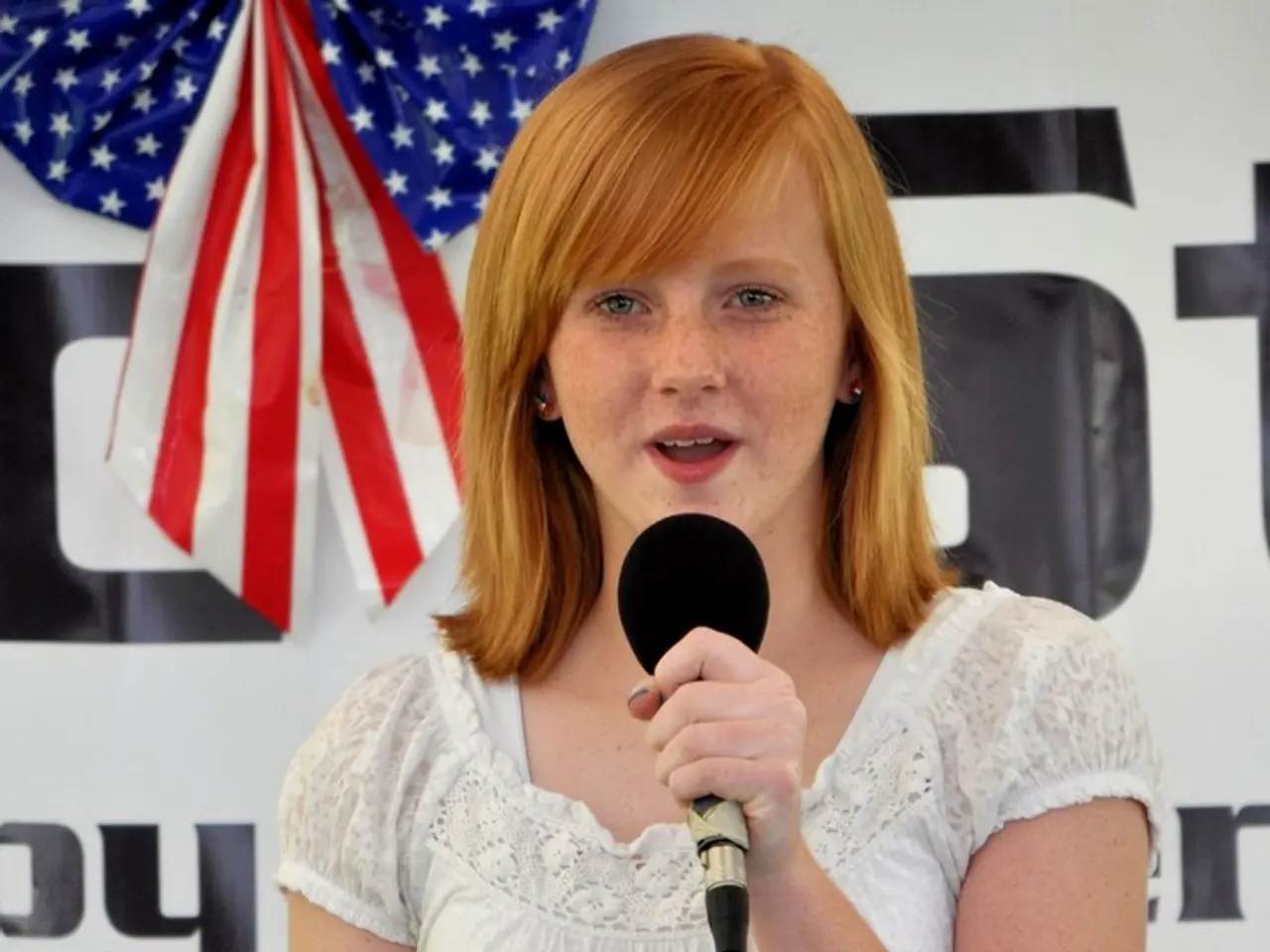Senate Approves Reductions in Government-backed Broadcast Financing
In a recent turn of events, Senator Mike Rounds has managed to secure $10 million in fiscal year 2026 funding for 14 tribal radio station grants in rural areas, saving these vital broadcast services from potential elimination. This deal, which involves reallocating unused climate change funds, comes as part of a broader rescissions package that the Senate approved early Thursday morning.
The initial rescissions package, aimed at reducing federal spending, had intended to eliminate funding for the Corporation for Public Broadcasting (CPB), a move that would have significantly impacted tribal radio stations. With up to 92% of their budgets at stake, about 35 stations in 11 states faced the prospect of going off the air. These stations play a crucial role in providing emergency alerts and public safety information, particularly in rural and underserved areas, including some of the poorest counties in the U.S., such as parts of South Dakota.
Senator Rounds expressed his concerns about the potential disconnection of his constituents from essential news and lifesaving alerts, prompting him to work with the Trump administration to identify and redirect $9.4 million in unused Green New Deal climate funds from the Interior Department to continue grants for these tribal radio stations. This arrangement allows the stations to operate without interruption while the Senate advances the $9 billion rescissions package, which targets non-lifesaving foreign aid and certain taxpayer-funded radio programs.
However, not everyone is convinced about the long-term viability of this funding strategy. Organisations like Native Public Media, which operates a network of approximately 57 Native radio stations, have raised concerns about the sustainability of relying on climate funding for tribal radio stations. These stations operate on tight budgets and may struggle to apply for competitive federal grants while maintaining daily broadcast services.
Meanwhile, the Trump administration has asked for a lawsuit against the cuts to be dismissed, stating that no federal funding has been withheld to this point. National Public Radio and several Colorado-based member stations have already sued Trump in federal court, arguing that the cuts are unlawful and threaten NPR's financial stability.
America's Public Television Stations President/CEO Katie Riley has also expressed concern about the deal, stating that while it continues some funding for tribal public media stations, it will still result in cuts and reduced service. The House must now vote on the final package, and if passed, the rescissions package will eliminate two years of pre-allocated federal funding for CPB.
In conclusion, the deal between Senator Mike Rounds and the Trump administration has secured funding for about 35 tribal radio stations across 11 states, ensuring they can continue providing vital emergency alerts and public safety communications. However, concerns about the sustainability of this funding strategy and the potential for reduced service persist. The House must now vote on the final package, which, if passed, will implement the broader rescissions plan.
[1] https://www.cpb.org/pressroom/pressreleases/2021/06/senator-mike-rounds-and-trump-administration-reach-deal-to-save-tribal-radio-stations-from-rescissions-package [2] https://www.npr.org/2021/06/25/1011968883/trump-administration-seeks-to-dismiss-lawsuit-over-npr-funding-cuts [3] https://www.nativepublicmedia.org/news/native-public-media-statement-on-senate-vote-on-rescissions-package [4] https://www.americanpublicmedia.org/system/files/2021-06/APTS-Rescissions-Statement.pdf [5] https://www.politico.com/news/2021/06/25/senate-rescissions-package-488486
- The recent deal between Senator Mike Rounds and the Trump administration has secured $10 million in funding for 14 tribal radio stations in rural areas, a move that will help these stations continue to broadcast general news, emergency alerts, and public safety information, thereby ensuring the media needs of the rural and underserved communities are met.
- The Senate's broader rescissions package, which includes this funding for tribal radio stations, also targets non-lifesaving foreign aid and certain taxpayer-funded radio programs, aiming to reduce federal spending in the policy-and-legislation arena of politics.
- Nevertheless, questions regarding the long-term viability of this funding strategy persist, as organizations like Native Public Media have raised concerns about the sustainability of relying on climate funding for tribal radio stations, citing potential struggles for stations to apply for competitive federal grants while maintaining daily broadcast services.






